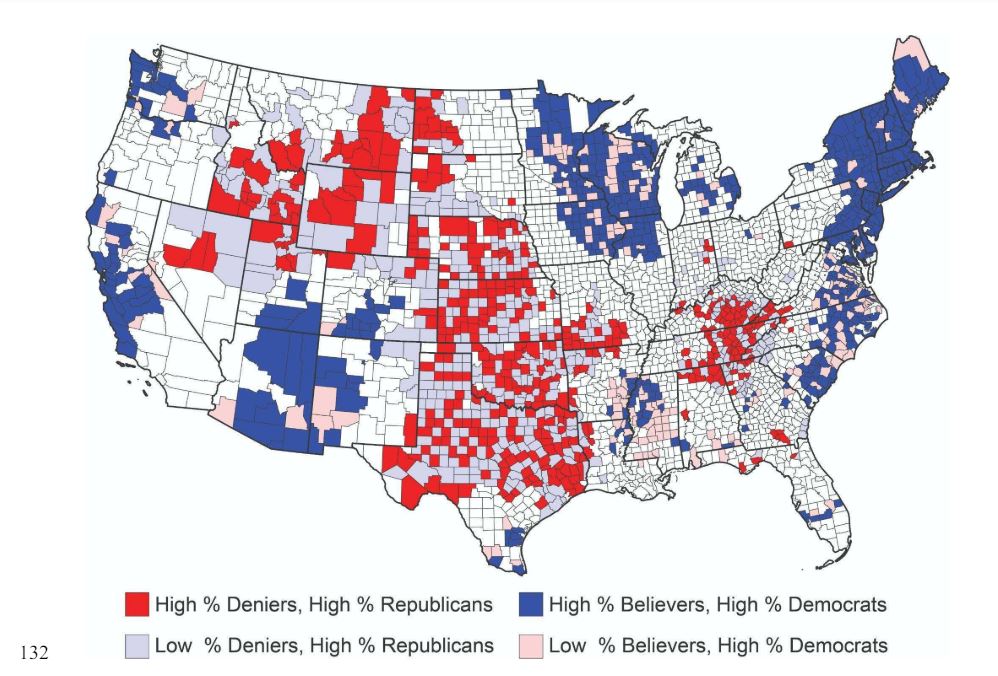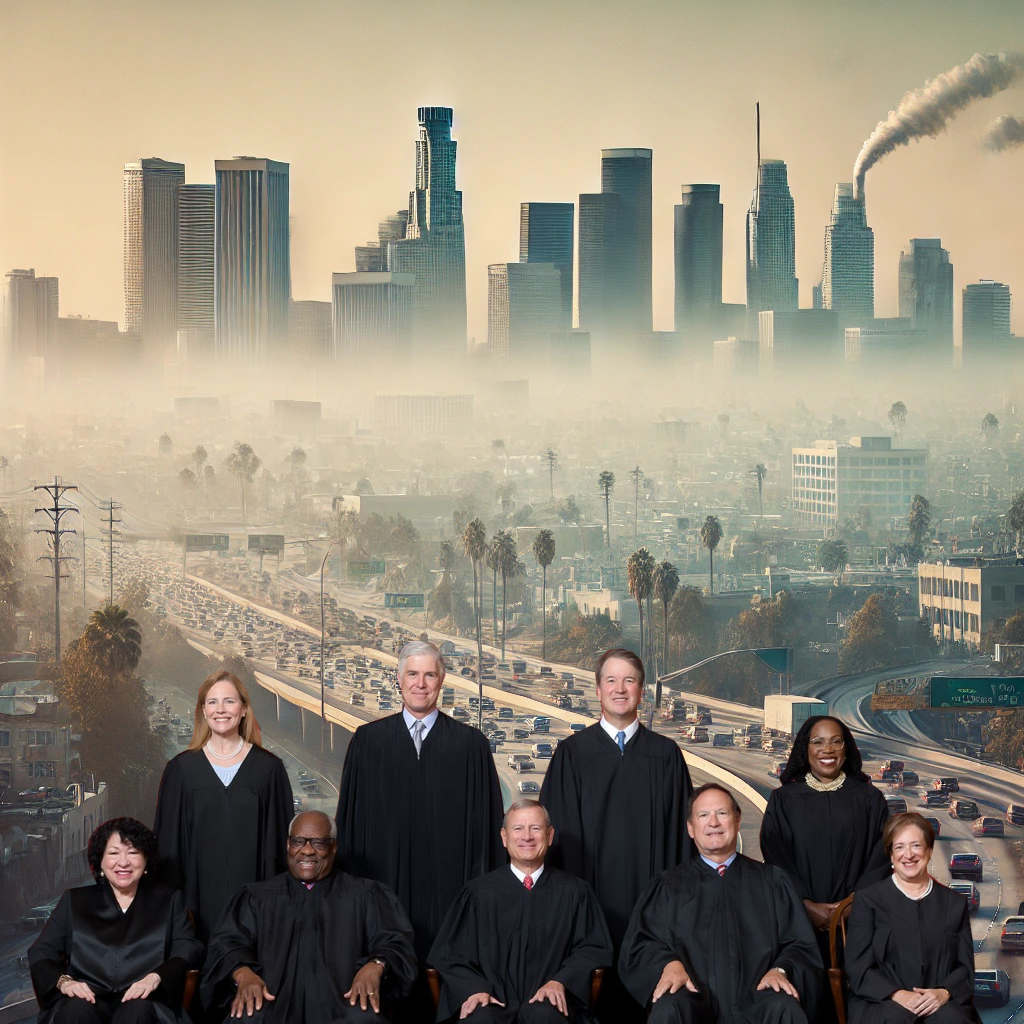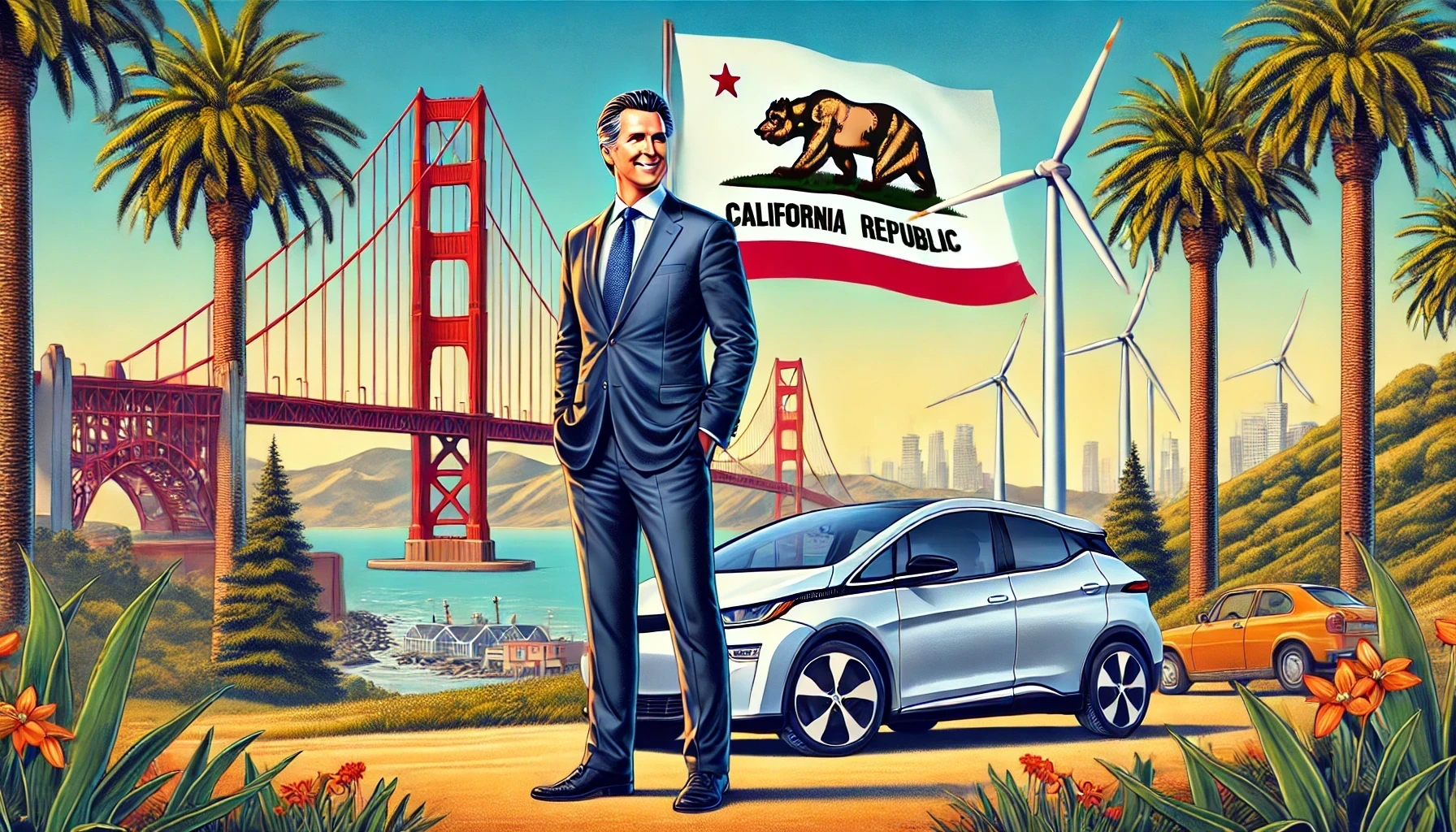In the ongoing discourse surrounding climate change, a stark divide often emerges along political lines, with Republicans frequently portrayed as skeptical or dismissive of the scientific consensus on the issue. While numerous factors contribute to this phenomenon, two primary influences stand out:
One is the deeply ingrained political ideology propagated by conservative-leaning networks like Fox News that give a distorted view of the actual scientific consensus on anthropogenic climate change.
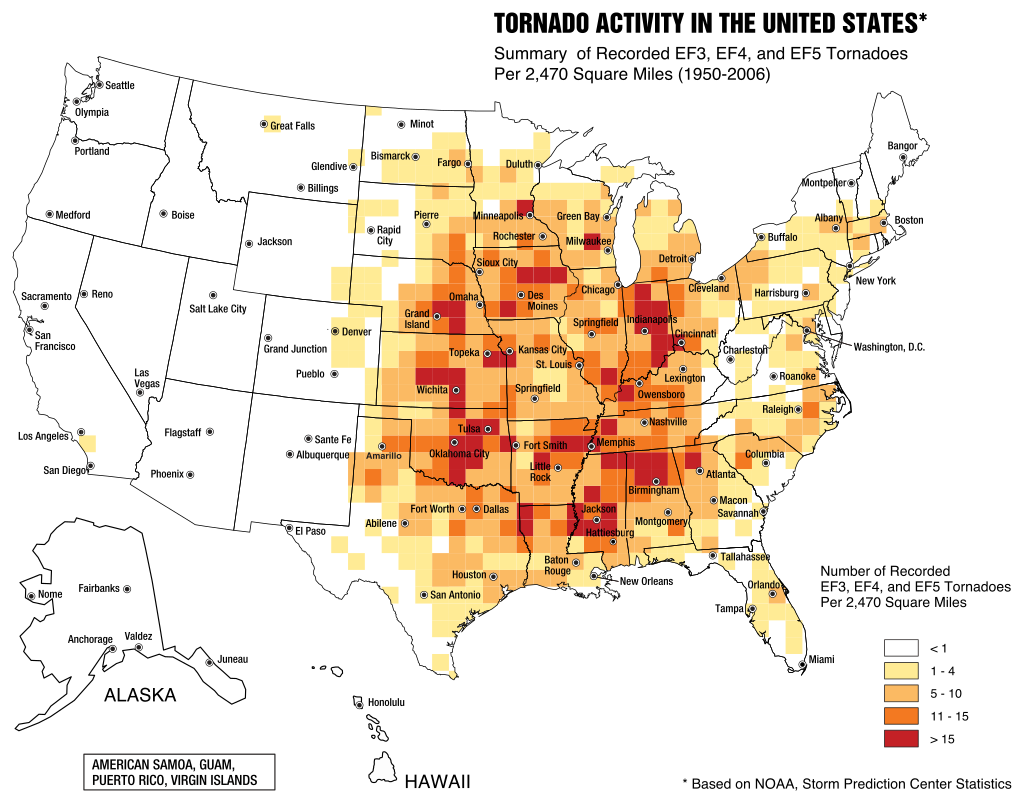
Secondly the geographical realities that position many Republicans in areas most susceptible to the impacts of climate change. This confluence creates a potent recipe for cognitive dissonance, wherein individuals hold conflicting beliefs or attitudes, leading to discomfort and resistance to change.
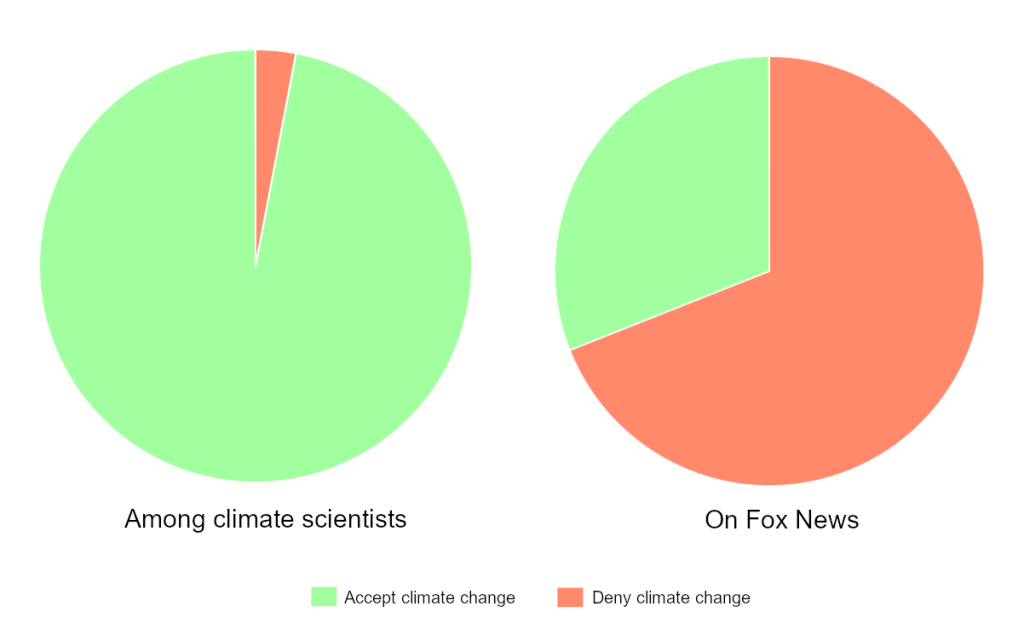
Conservative ideology, as disseminated through media outlets such as Fox News, has played a pivotal role in shaping Republican perspectives on climate change.
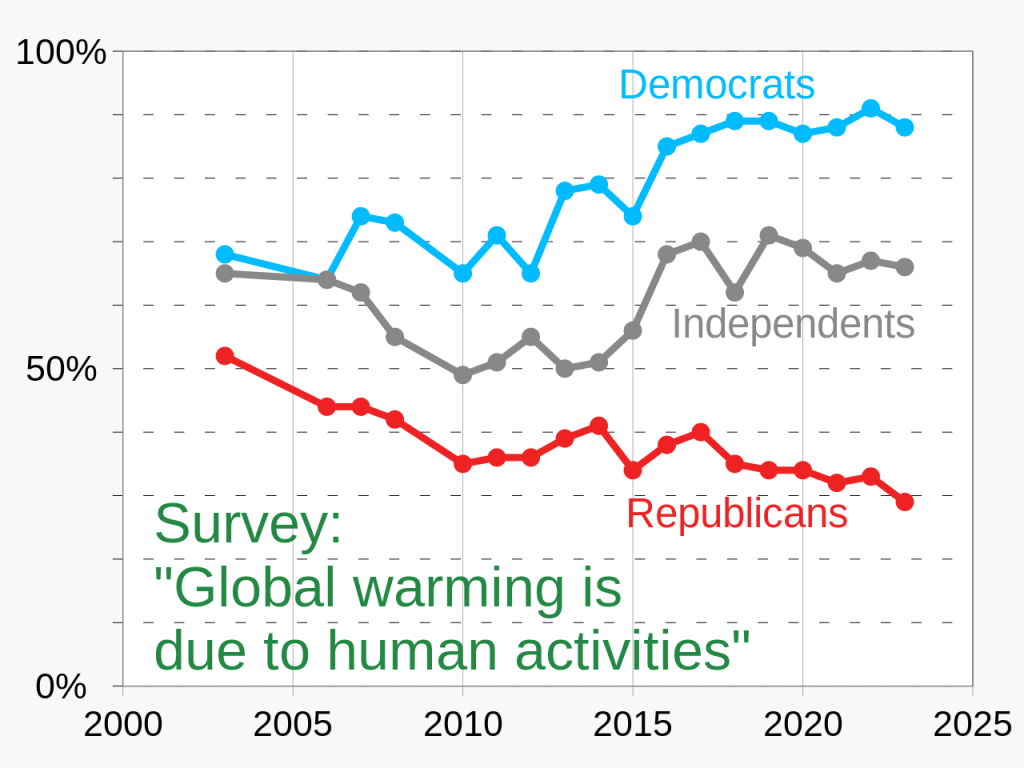
Over the years, these platforms have often framed the issue as a partisan battleground rather than a matter of scientific consensus and empirical evidence. Through the dissemination of skepticism, doubt, and outright denial, they have fostered a narrative that casts doubt on the validity of climate science, portraying it as a ploy by liberal elites to expand government control and impede economic growth.
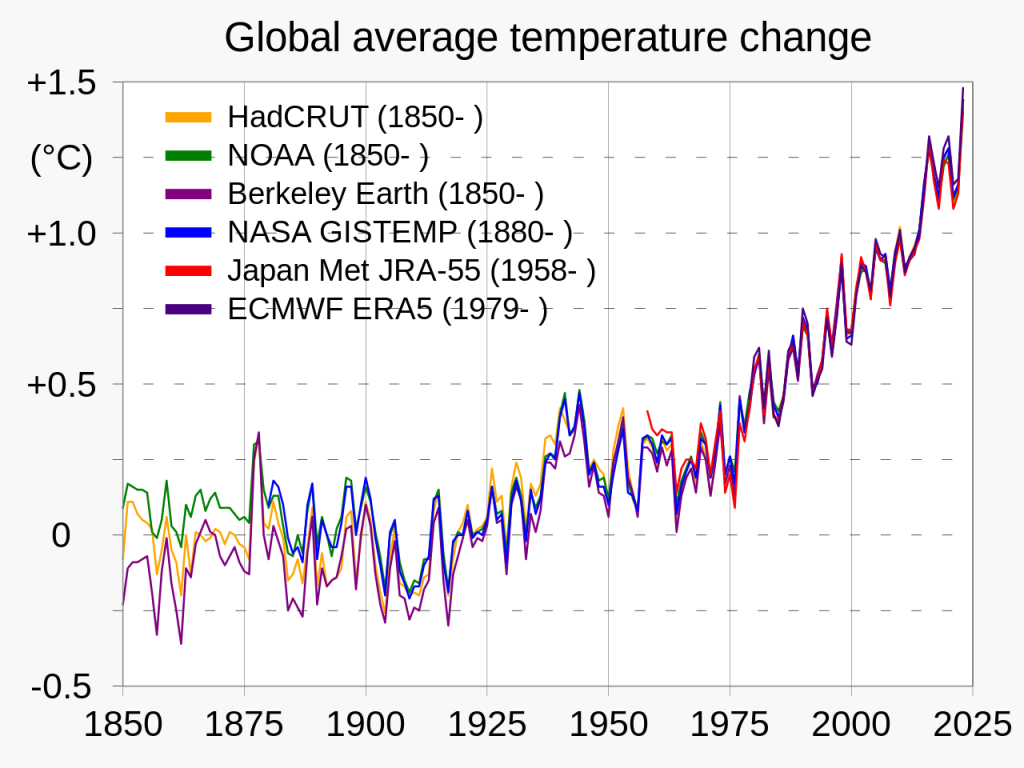
This narrative not only reinforces existing beliefs among conservatives but also erects barriers to accepting information that contradicts their worldview.
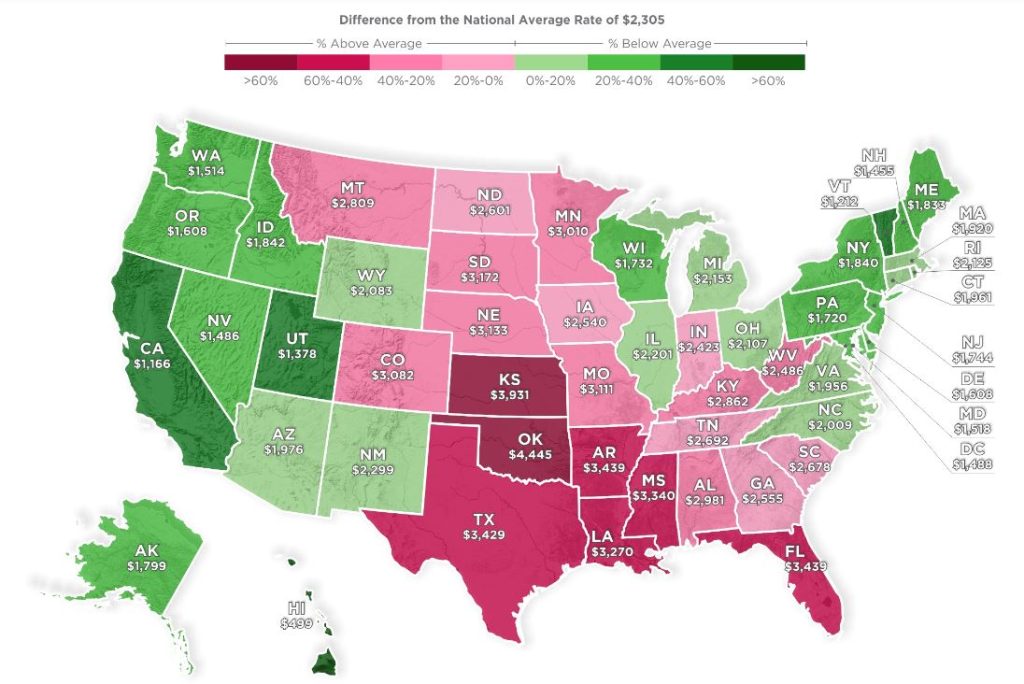
The geographic distribution of Republican voters often aligns with regions most vulnerable to the impacts of climate change, creating a paradoxical situation akin to the classic example of cognitive dissonance surrounding dam safety. Just as individuals living closest to a dam may downplay the risk of its failure while those downstream express greater concern, many Republicans reside in areas disproportionately affected by climate change, such as coastal regions facing rising sea levels, agricultural heartlands grappling with droughts and extreme weather events, and communities vulnerable to wildfires and hurricanes.
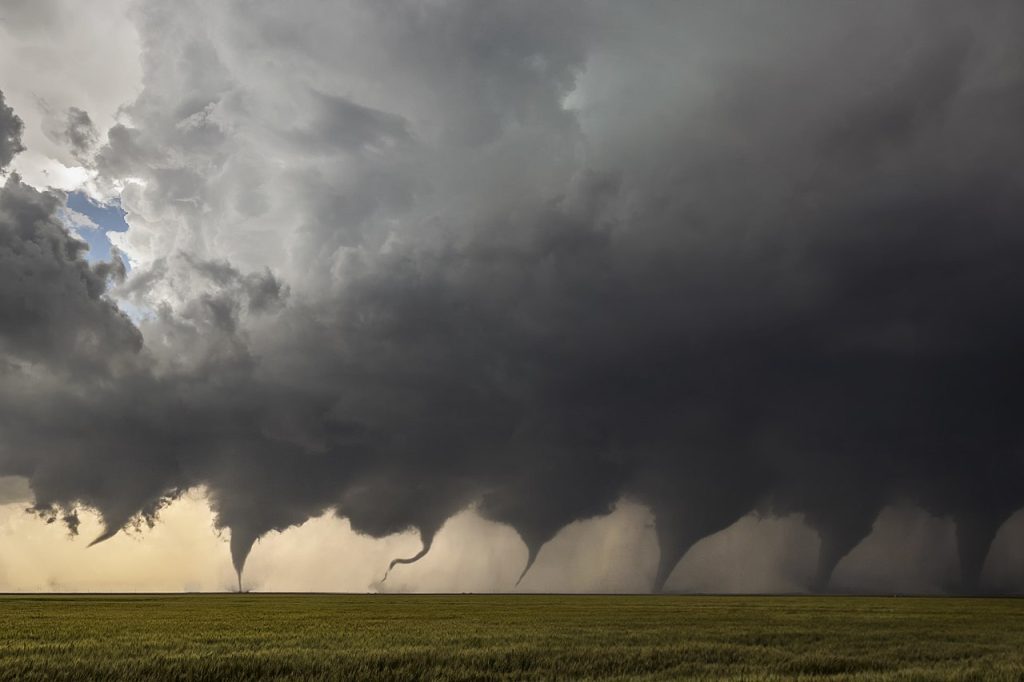
Despite facing tangible threats to their livelihoods and environments, cognitive dissonance may manifest as a reluctance to acknowledge the role of human activity in exacerbating these risks, particularly when doing so conflicts with deeply held political beliefs.
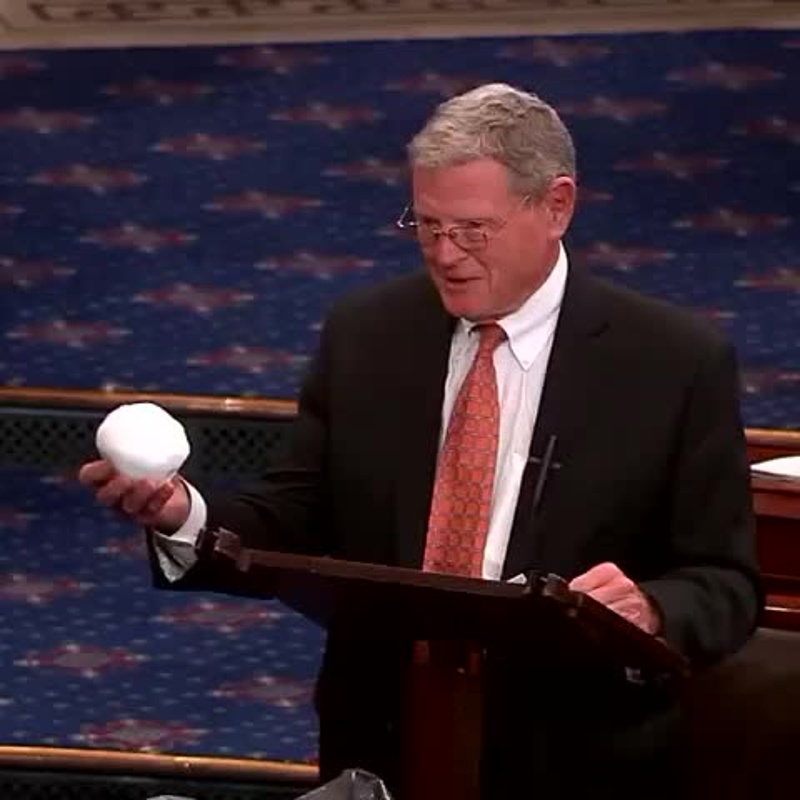
This phenomenon is not merely theoretical but has tangible consequences for policymaking and public discourse. Intransigence on the part of Republican lawmakers and constituents impedes efforts to enact meaningful climate legislation, perpetuating a cycle of inaction that exacerbates the very challenges they face. Moreover, it underscores the urgent need for nuanced communication strategies that bridge ideological divides and emphasize shared values, such as stewardship of the environment and protection of future generations.
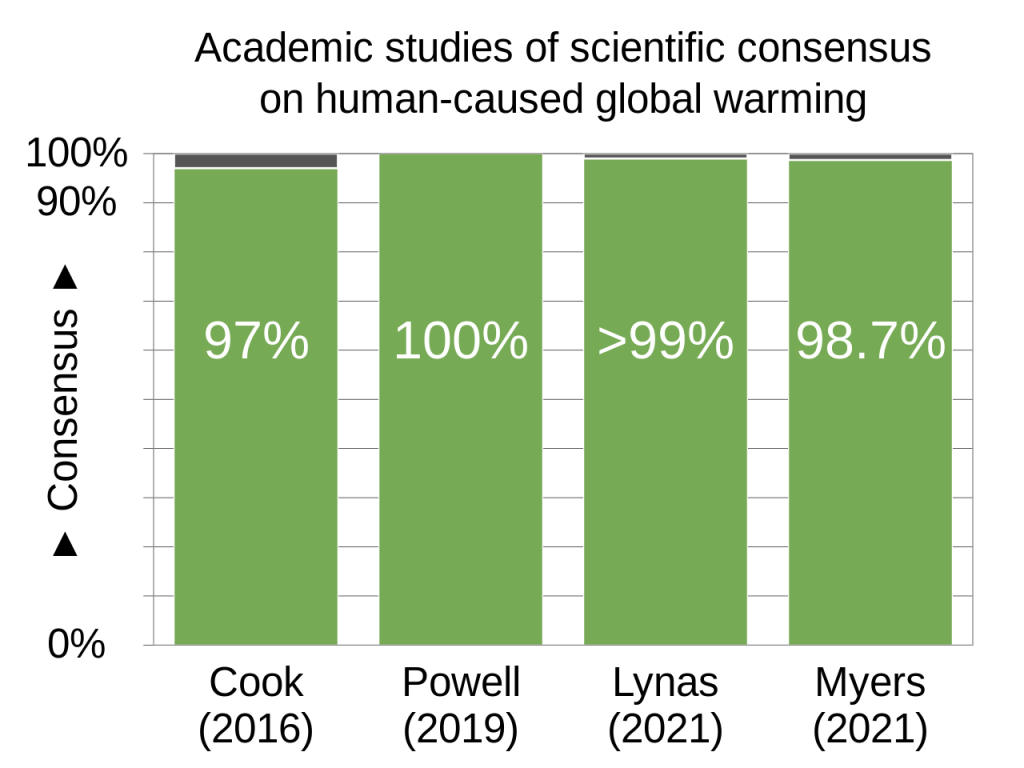
Addressing cognitive dissonance among Republicans regarding climate change requires a multifaceted approach that acknowledges the complex interplay of ideology, geography, and media influence. Efforts to depoliticize the issue, engage local communities, and promote science-based education are crucial steps toward fostering a more constructive dialogue and empowering individuals to confront uncomfortable truths. By recognizing and addressing the cognitive dissonance inherent in this issue, we can move closer to meaningful solutions that safeguard both our planet and our collective future.


